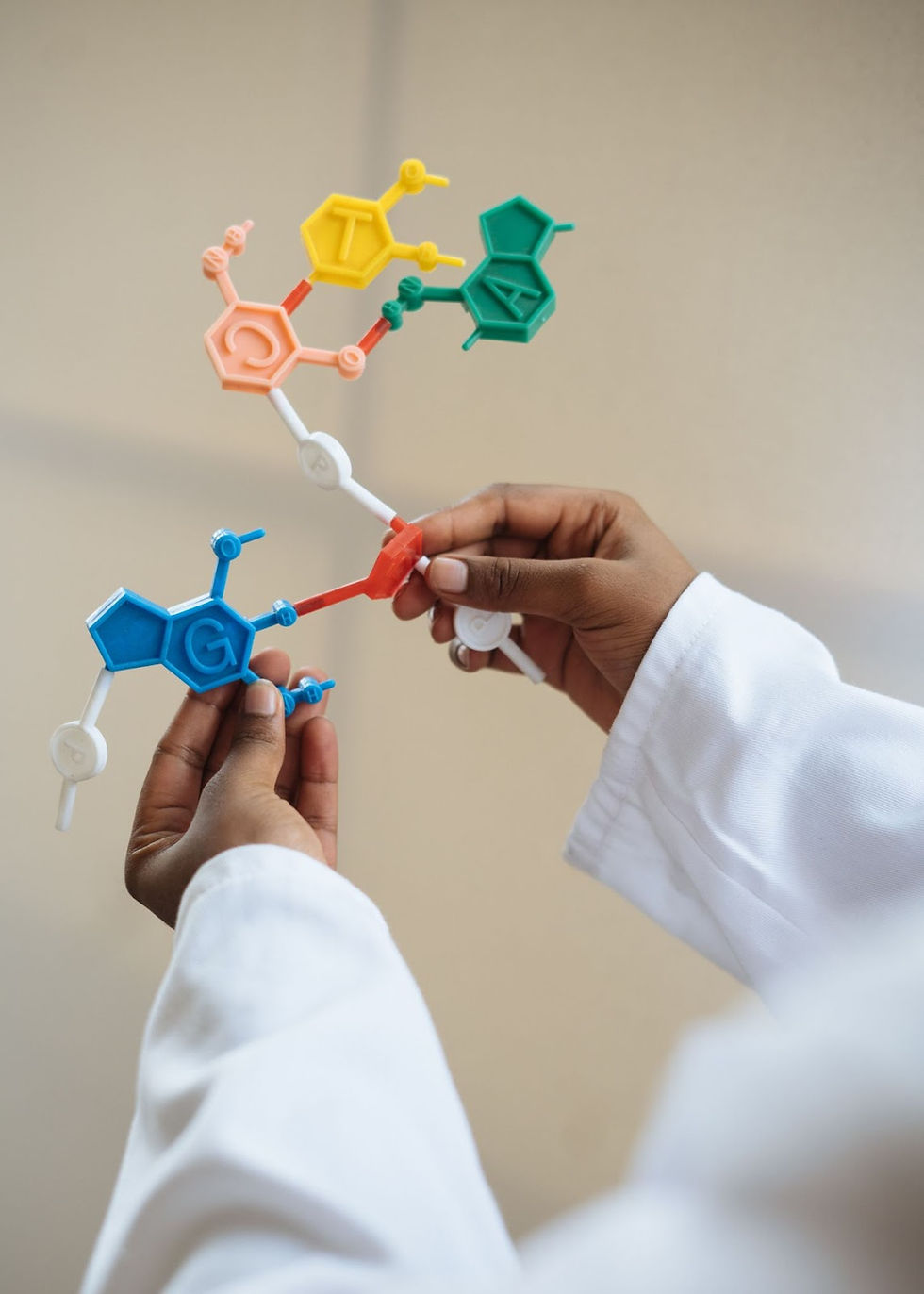The True Cost of a Cure: How Vaccine Nationalism Impacts the COVID-19 Pandemic
- Denali Perera

- Sep 17, 2020
- 4 min read
Updated: Mar 10, 2021

As the world awaits a return to normalcy amidst the current COVID-19 pandemic, discovering an effective vaccine is at the forefront of public health concerns. The scope of this crisis has been enveloped with geopolitical tensions from the beginning, which are now manifesting as ‘vaccine nationalism.’ Many countries are interested in being the first to approve a vaccine, as it would be a catalyst to economic growth, a symbol of national pride, and a form of diplomatic leverage. Akin to the chaotic scramble for toilet paper that left grocery stores empty during March, rich countries like the United States have already placed large pre-orders of vaccine doses, leaving less medical supply stock for others. Lack of equipment has been an issue from the beginning of the pandemic, with the high demand for medical masks, testing reagents, and personal protective equipment (PPE). The World Health Organization experienced obstacles in shipping supplies worldwide and countries even tried to intercept exports. If international superpowers prioritize domestic politics and profits over international cooperation, curbing the spread of coronavirus on a global level will be even more challenging.
The ‘every man for themselves’ ideology is not practical in the case of a global pandemic, as this would allow higher-income countries to secure vaccines from private firms that set them at high price points, excluding poorer nations. Governments and pharmaceutical companies have signed vaccine development deals that cede manufacturing patent rights to the firms and selective access to the countries’ citizens. Vaccines are not the most profitable to the pharmaceutical industry as they are typically administered in one dose, so lucrative government subsidies are highly coveted because they give firms pricing control. As a consequence, during the HIV epidemic, antiretroviral drugs entered the market at expensive costs. Patent hoarding gave the manufacturers monopolistic power to overcharge for the medicines, while preventing other companies from selling the same drug for less. HIV/AIDS became a leading cause of death in many low income countries, and the barriers to access the drugs further escalated this. Between 1997 and 2007, 12 million Africans died waiting for existing but unavailable HIV medications. It took 7 years for this treatment to reach Africa, the hardest hit continent that is still recovering from the effects.
To ensure this history of a race for access to treatment does not repeat itself during the COVID-19 pandemic, clinical trials must take place in Sub-Saharan Africa and other low-income regions. This would ensure the vaccines are safe and effective for these populations and also restrict pharmaceutical companies from excluding them based on “cost-effectiveness.” In addition to expanding African participation in vaccine trials, securing a sufficient share of the global supply of vaccines through pooled funds, project financing, and scale-up of factories is vital. Educating the public through informative campaigns and accelerating vaccine authorization processes will promote immunization, allowing the roll-out to be equitable. In an attempt to speed up vaccine development and distribution, the World Health Organization (WHO), the Coalition for Epidemic Preparedness Innovations (CEPI), and the Global Alliance for Vaccines and Immunization (GAVI) have joined to launch the COVID-19 Vaccine Global Access (COVAX) Initiative. This program encourages both self-financing countries and countries in need to sign up, regardless of ability to pay. Collaborating with multinational vaccine manufacturing companies, the COVAX Initiative aims to pool development, procurement, and allocation of effective COVID-19 vaccines to secure access for healthcare workers and at-risk populations, even in the poorest of nations.
The chief of the World Health Organization, Tedros Adhanom Ghebreyesus, expressed the sentiment that fair access to future vaccines is critical, stating, “While there is a wish amongst leaders to protect their own people first, the response to this pandemic has to be collective. Sharing finite supplies strategically and globally is actually in each country’s national interest.” The idea of a vaccine being approved seems like a “magic bullet” for the virus, but in order for it to truly be a viable solution, vaccine development and distribution must be executed within a framework of social justice. Multilateralism is more important than ever, as the world looks towards the common goal of ending this pandemic. With healthcare being marketed as a commodity rather than a necessity, the most vulnerable populations are often also the ones that get left behind. If countries holding greater economic and political power take precedence over those with a greater need for vaccination, the global implications will be long lasting. In the midst of an arms race for a vaccine, a public health approach that focuses on protecting everyone will be the most successful at slowing the transmission of disease. It is the responsibility of sovereignties to demand transparency during this unprecedented phase of vaccine development, to confirm that future vaccines will be sold at affordable prices and avoid unnecessary loss of life.
Sources:
Bremmer, I. (2020, July 27). What Vaccine Nationalism Means for the Coronavirus Pandemic. Retrieved October 29, 2020, from https://time.com/5871532/vaccine-nationalism-coronavirus-pandemic/
Buranyi, S. (2020, August 14). 'Vaccine nationalism' stands in the way of an end to the Covid-19 crisis | Stephen Buranyi. Retrieved October 29, 2020, from https://www.theguardian.com/commentisfree/2020/aug/14/vaccine-nationalism-stands-in-the-way-of-an-end-to-the-covid-19-crisis
Kai KupferschmidtJul. 28, 2., Sofia MoutinhoJan. 11, 2., Sofia MoutinhoJan. 8, 2., Sofia MoutinhoJan. 5, 2., & Lucy HicksDec. 21, 2. (2020, July 29). 'Vaccine nationalism' threatens global plan to distribute COVID-19 shots fairly. Retrieved October 29, 2020, from https://www.sciencemag.org/news/2020/07/vaccine-nationalism-threatens-global-plan-distribute-covid-19-shots-fairly
Nkengasong, J., Ndembi, N., Tshangela, A., & Raji, T. (2020, October 06). COVID-19 vaccines: How to ensure Africa has access. Retrieved October 29, 2020, from https://www.nature.com/articles/d41586-020-02774-8
WHO chief warns against COVID-19 'vaccine nationalism', urges support for fair access | | UN News. (2020, August 20). Retrieved October 29, 2020, from https://news.un.org/en/story/2020/08/1070422




Comments